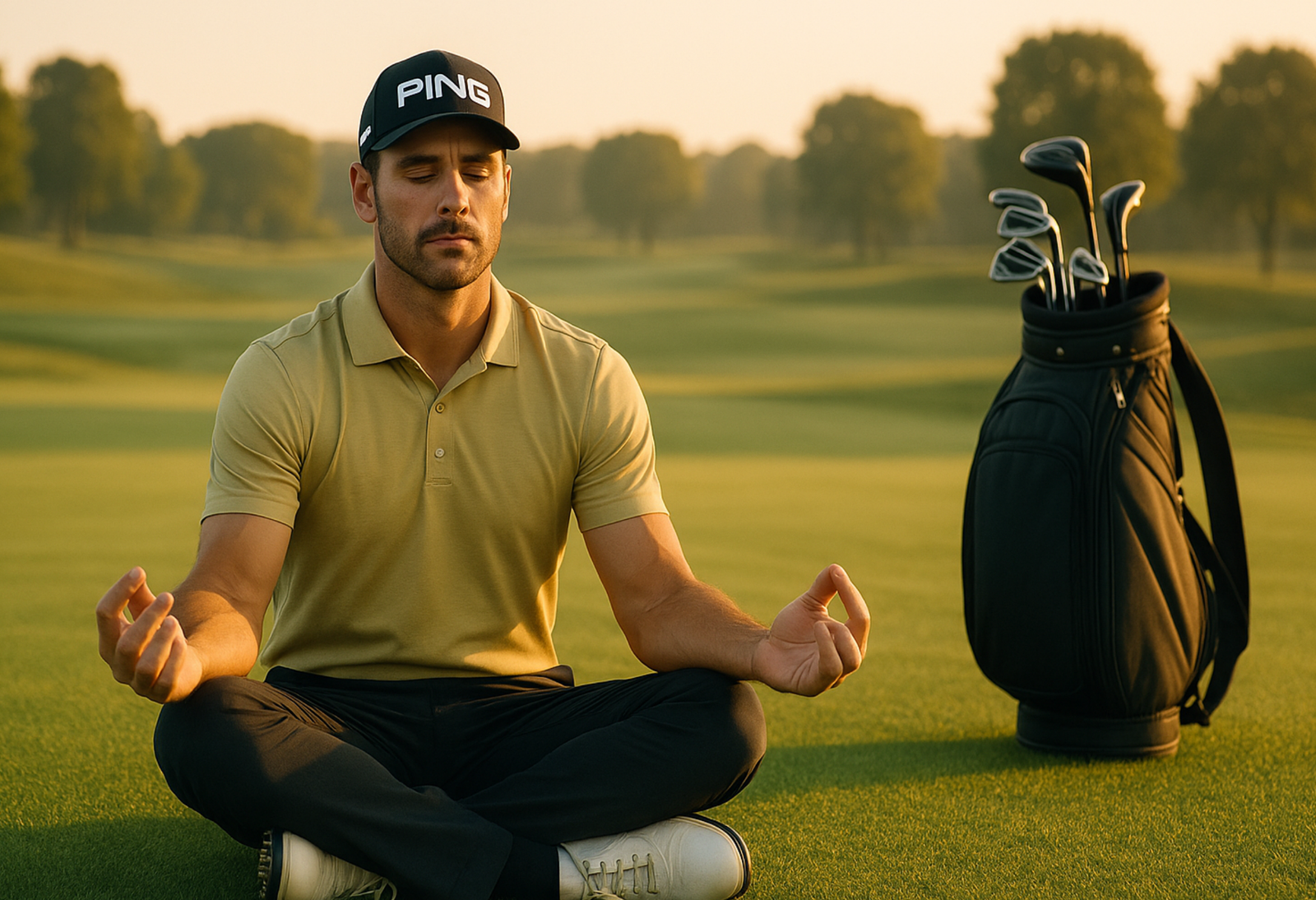Golfers need to learn how to calm down and relax on and off the course. Sometimes a bad shot during a game may turn into a cascade of more bad ones, especially if the golfer’s mind isn’t in the right state. Learning the right techniques to take the edge off can make a huge difference. Some of the things you should try include:
- Stay in control where possible
This stands as one of the best ways to maintain calm in the course. It is important to accept the things that you can control and those that you cannot. The way you make a swing and stay committed are some of the controllable things. Your opponent’s pace and the wind are not.
Trying to weigh out the possible future outcomes causes distraction and unnecessary tension. As such, you need to stay in the present. It is one of the good ways to regulate emotions. Concentrate on acing every shot and train the mind not to drift to other things. Instead of remaining fixated on that bad bounce or shot you just made, you need to breathe. This is the best way to reset and start preparing for the next shot. Concentrating on this adds to your resilience because your psychological health is better.
- Come up with the ideal pre-shot routine
Having a routine is among the methods you can embrace to remain calm even under pressure. Doing pre-shot routines signals the brain to focus and prepare to perform. A good routine means you won’t stand over the ball more than necessary. Normally, delaying taking a shot only triggers tension. With a routine you can follow, you are less likely to overthink and it triggers motion successfully.
The ideal routine should be as simple as possible to make it easier for you to follow through every time. This eliminates tension that often extends to the swing quality. To thrive in golf, you need to check on your stress levels throughout the game. One practical tip you can apply is to shrug your shoulders, loosen your grip, waggle the golf club, and let your arms hang as naturally as you possibly can.
- Learn to control your breathing
As pressure mounts during the game, your body can slowly shift to a fight-or-flight state. This involves things like shallow breathing and a rise in your heart rate. Working on your breathing can help reverse the situation. There are several techniques you can apply to achieve this level of calm. Before you take your shot, take a deep breath and inhale through the nose. Hold for a few seconds and exhale through the mouth. By remaining focused on breathing, you can successfully regulate your nervous system which in turn signals the body to relax.
- Mindfulness and meditation
Mindfulness is awareness and can help you regulate your emotions. As a result, golfers can stay present during the game and beyond. Higher levels of mindfulness is closely associated with more energy and lower chances of burnout. A combination of this and meditation has become very popular especially in handling anxiety and stress in contemporary settings. The same technique is applicable to golf with the main result being a boost in focus, stress management, impulse control, and improved self awareness.
To get the most out of this option, you need to incorporate it into your daily routine, not just during the game. This helps put your mind into an observation state so you don’t miss a beat. You can find self-care resources that allow you to slow down here at Rest & Digest: https://restanddigest.com.au/. When you make it a part of you, it becomes so much easier to sidestep all those negative emotions and thoughts.
Consider taking a few seconds in between holes to simply notice the surroundings and breathe. try to observe without any judgement. This lowers anxiety and can positively affect your performance. Sensory awareness and body scanning are other ways of quieting the mind while remaining in the present. Mindfulness involves visualization as well. Work on seeing a shot in the mind’s eye to help the brain not only build confidence but also succeed.
- Set realistic goals and avoid negative thoughts
By setting realistic goals, you avoid unnecessary pressure of perfect performance. While it’s normal to make mistakes during a golf game, what matters most is the way you respond. You should never allow a single shot to define the current round. Don’t take too long pondering on one bad hole as it can affect the entire game. Instead, start getting ready for the next one. Accept the imperfections as fast as you can so as to remain strong throughout.
Self-doubt and negative thoughts often undermine focus and confidence causing anxiety and tension. Golfers need to practice reframing techniques to avoid negative beliefs and thoughts. This gives you the opportunity to move to more constructive and positive perspectives instead of self criticism. As a result, you improve self compassion. If you make a mistake, take it as a chance to learn instead of a total failure.
Positive talk influences your performance and mood..Steer away from any negative thoughts. Choosing anchor words stabilizes tempo and reduces anxiety levels.
Final thoughts
Golf is viewed as one of the best sports that can help you improve your mental state. As such, you should not curve under self-imposed pressure. The sport isn’t just swing proficiency; it is mastering the mind. The calmness and relaxation techniques should not be viewed as a one time fix. Rather, they should be habits you work on building. A golfer’s mindset is one of their greatest assets, setting them apart from others. Staying calm is the right way of maintaining your competitive edge.
